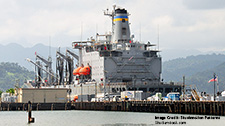The AI Race: Collaboration to Counter Chinese Aggression

Sriparna Pathak and Divyanshu Jindal
Artificial Intelligence (AI) has the potential to replace humans, as it can help overcome language barriers, improve governance, deliver better healthcare, and create art. However, AI also has the potential to be highly disruptive, causing ripples that can alter the existing democratic world order. Using AI for facial recognition and leading crackdowns on dissenting citizens is just one of its many negative uses. In the international arena, particularly during conflicts, AI can collect voice samples from militarily sensitive regions, and the data collected could be used for automated extra-territorial mass surveillance. While the U.S. and China are the leaders in AI so far, other states have also started realizing its importance. In this context, it is essential to underline India’s AI experience. Democracies need to collaborate to ensure the current democratic world order does not get thwarted by revisionist powers using the malicious potency of AI.
Related Publications
-
First Stockholm Forum on Himalaya calls for Greater Collaboration between India, the EU & the US
China’s role as a revisionist power in the region needs to be addressed Urgency of tackling both environmental and geopolitical issues in the Himalayas October 17, 2024: The first-ever Stockholm […]
-
Needed, a Framework to Protect Undersea Cables
In the data-driven world we live in, submarine cables are the arteries that connect nation-states and their people in literally every human activity, including trade, commerce, entertainment, and social interactions. […]
-
India-Japan-Philippines: A Strategic Maritime Trilateral or More?
Regional states like India, Japan, and the Philippines have been seeking cooperative solutions with other middle powers that can both counter the Chinese influence and fulfill other economic as well […]
-
Report of the Webinar on China’s Himalayan Hustle – Part IV: EU, India, and US – Framing a Troika to Scuttle China’s Himalayan Strategy?
This report is an outcome of ‘China’s Himalayan Hustle-IV’ webinar on “EU, India, and US – Framing a Troika to Scuttle China’s Himalayan Strategy?” which was conducted by the Stockholm […]
-
The Climate Crisis in Tibet: The Dalai Lama’s Warning
Earlier this year, at the ninth International Conference of Tibet Support Groups (TSGs) – a political advocacy meeting for raising awareness about Tibetan issues – held in Brussels, with over […]




